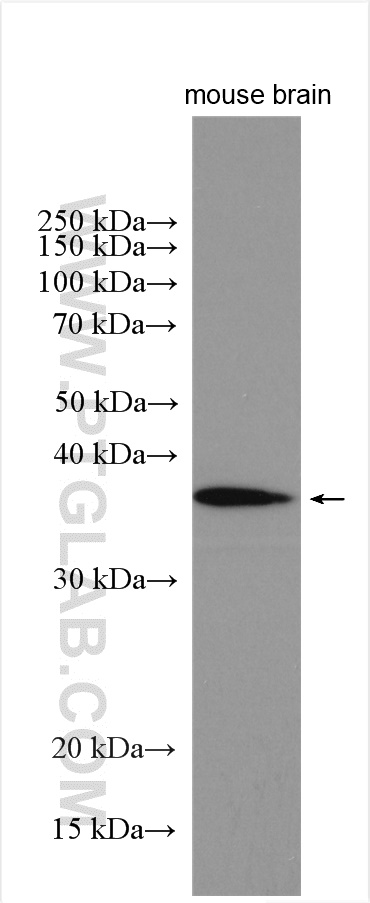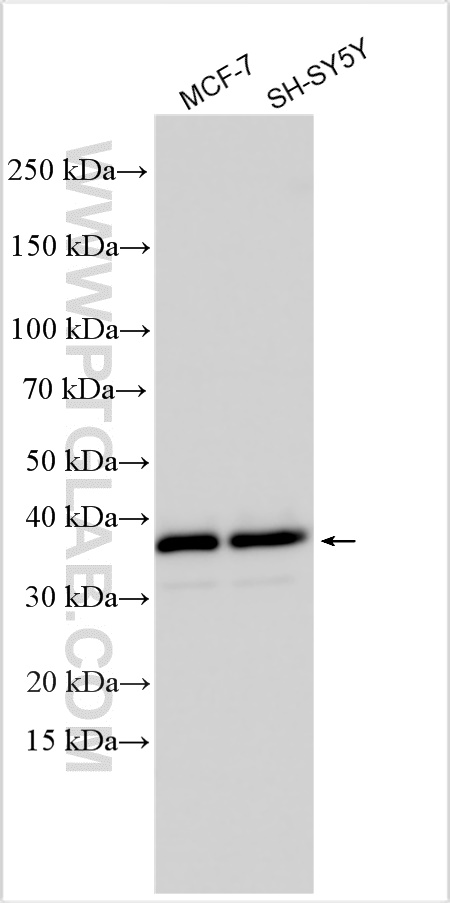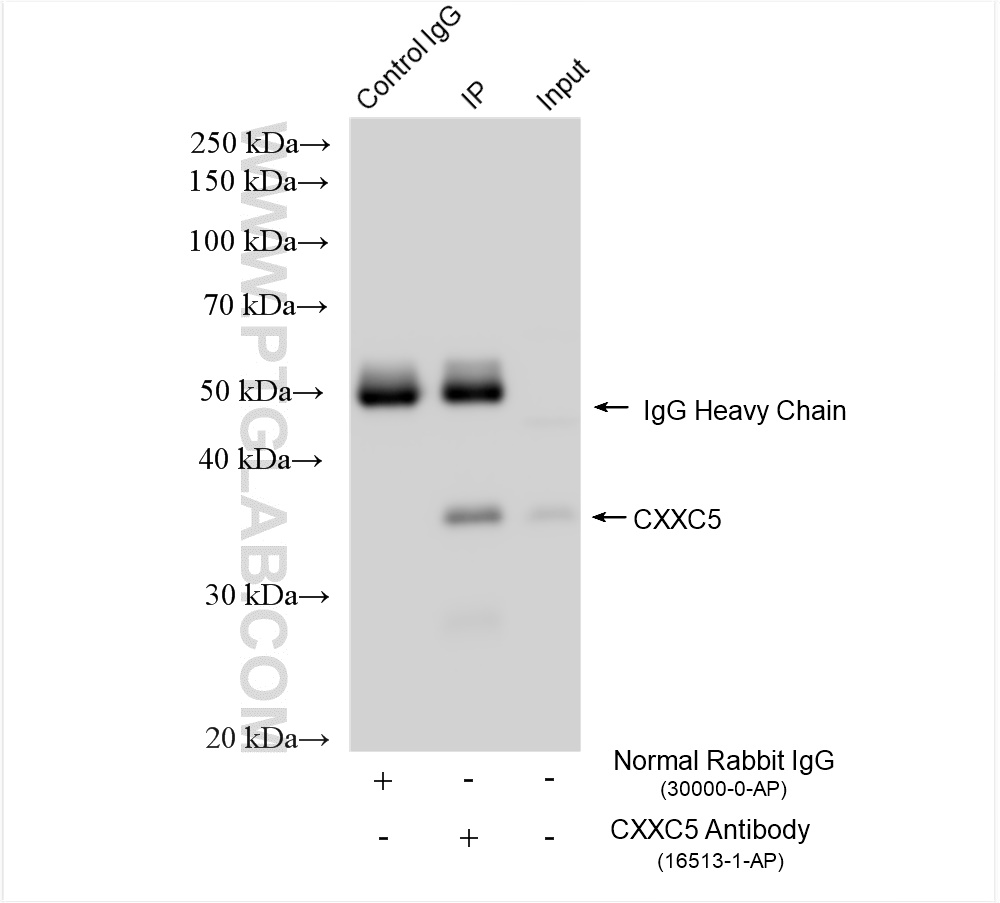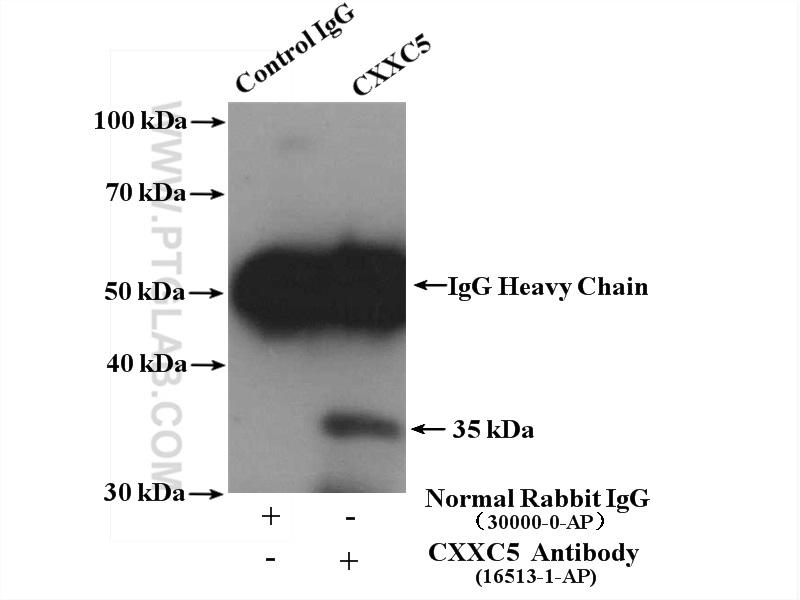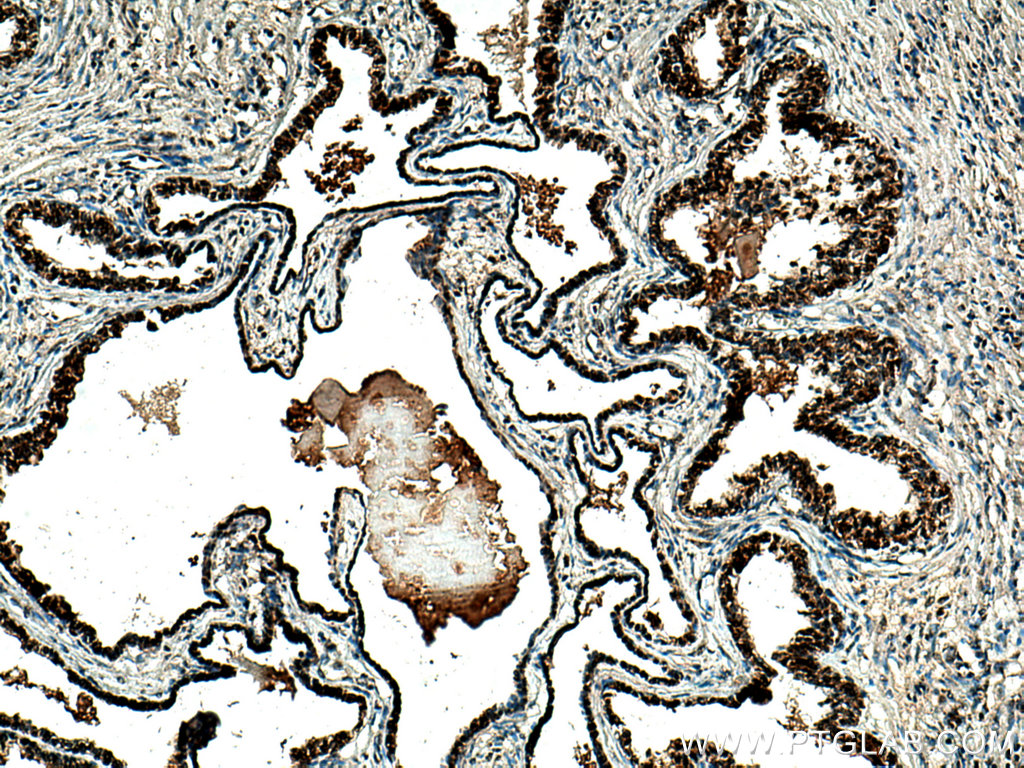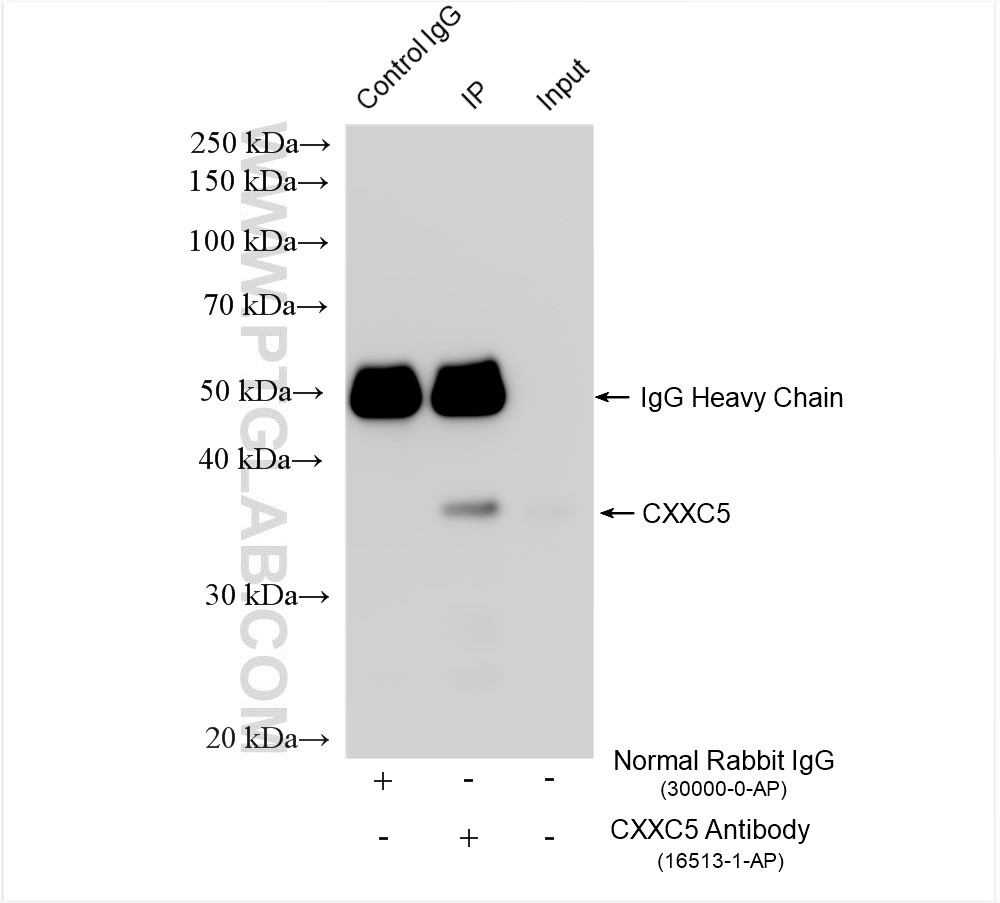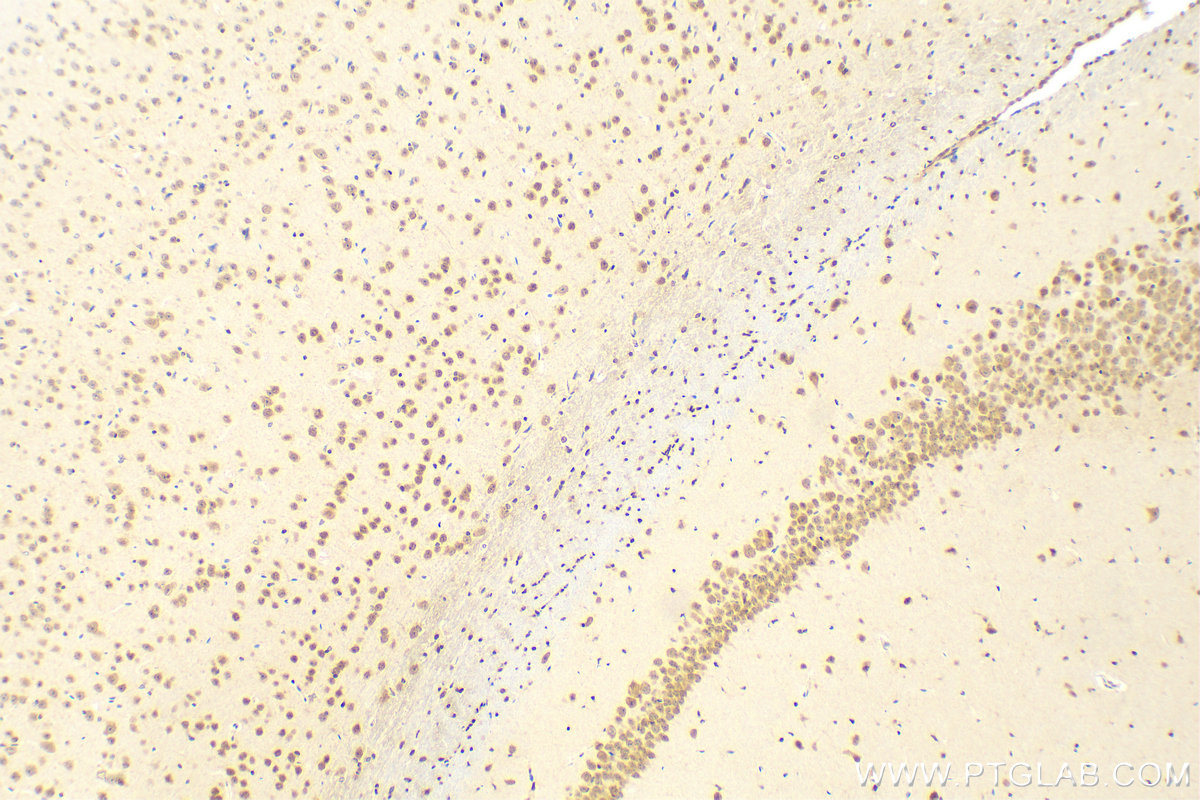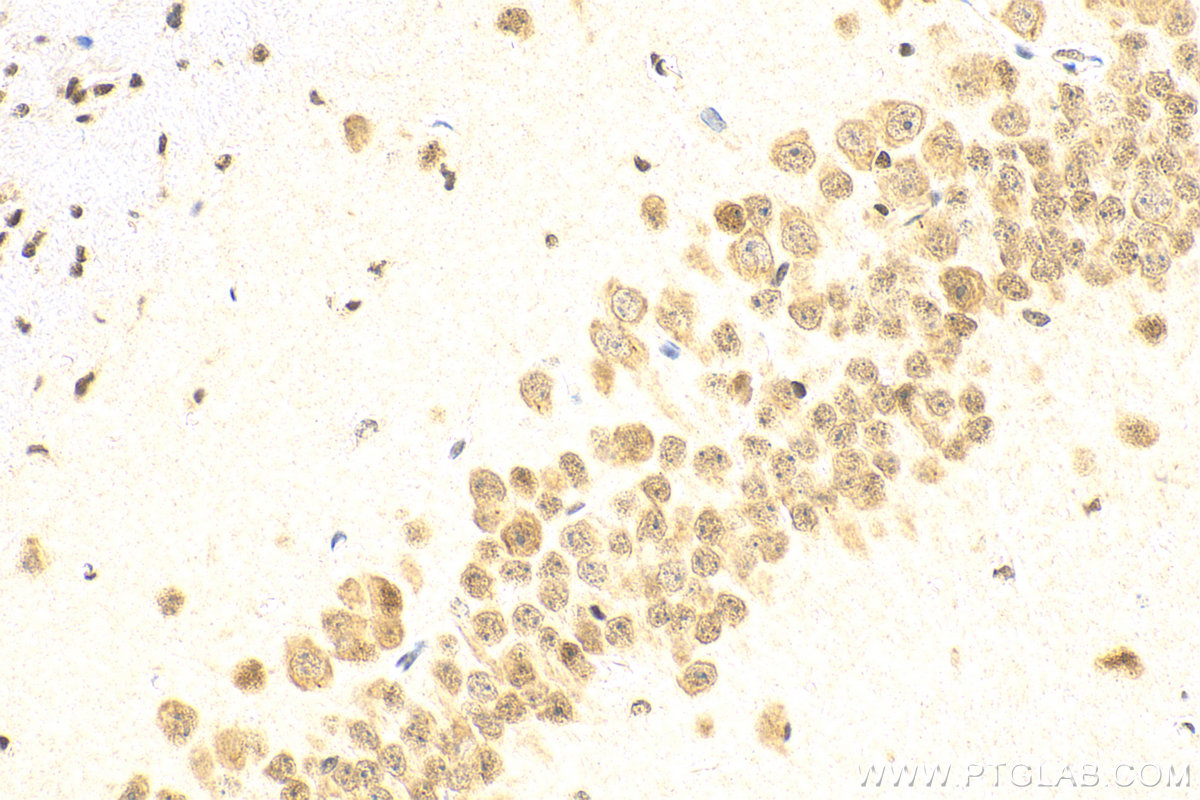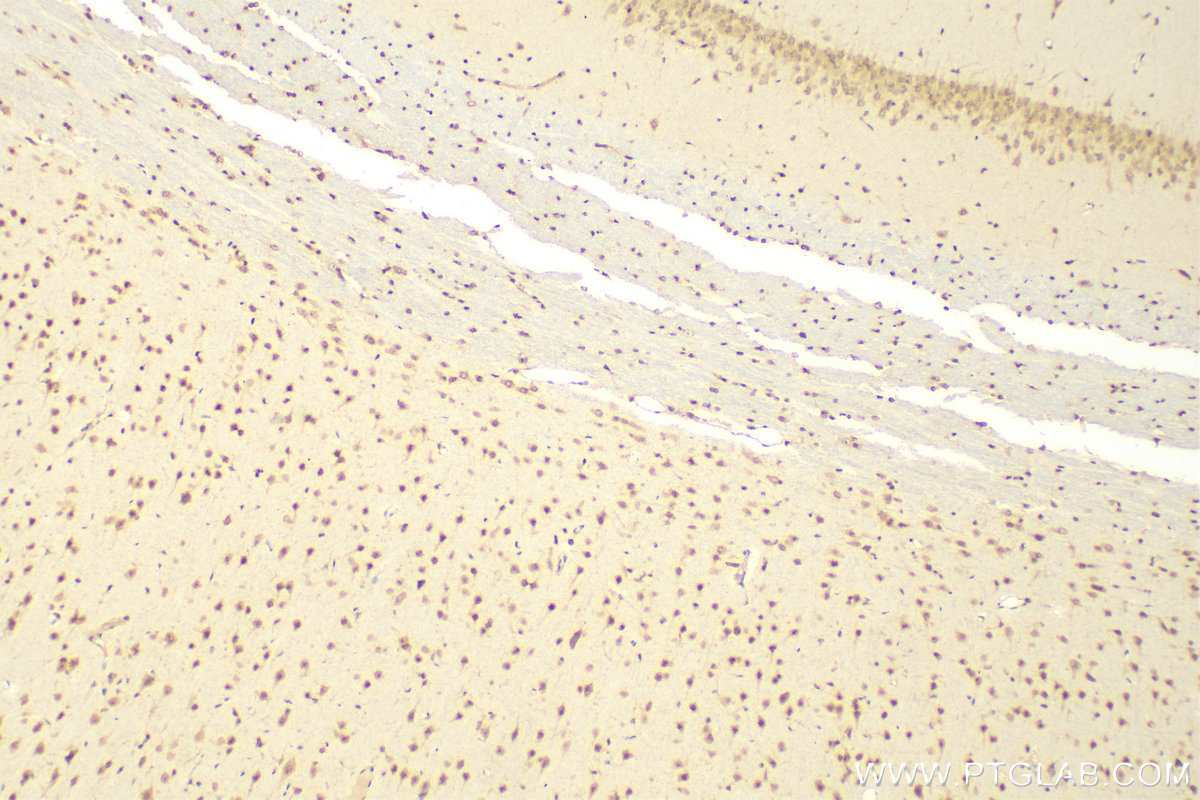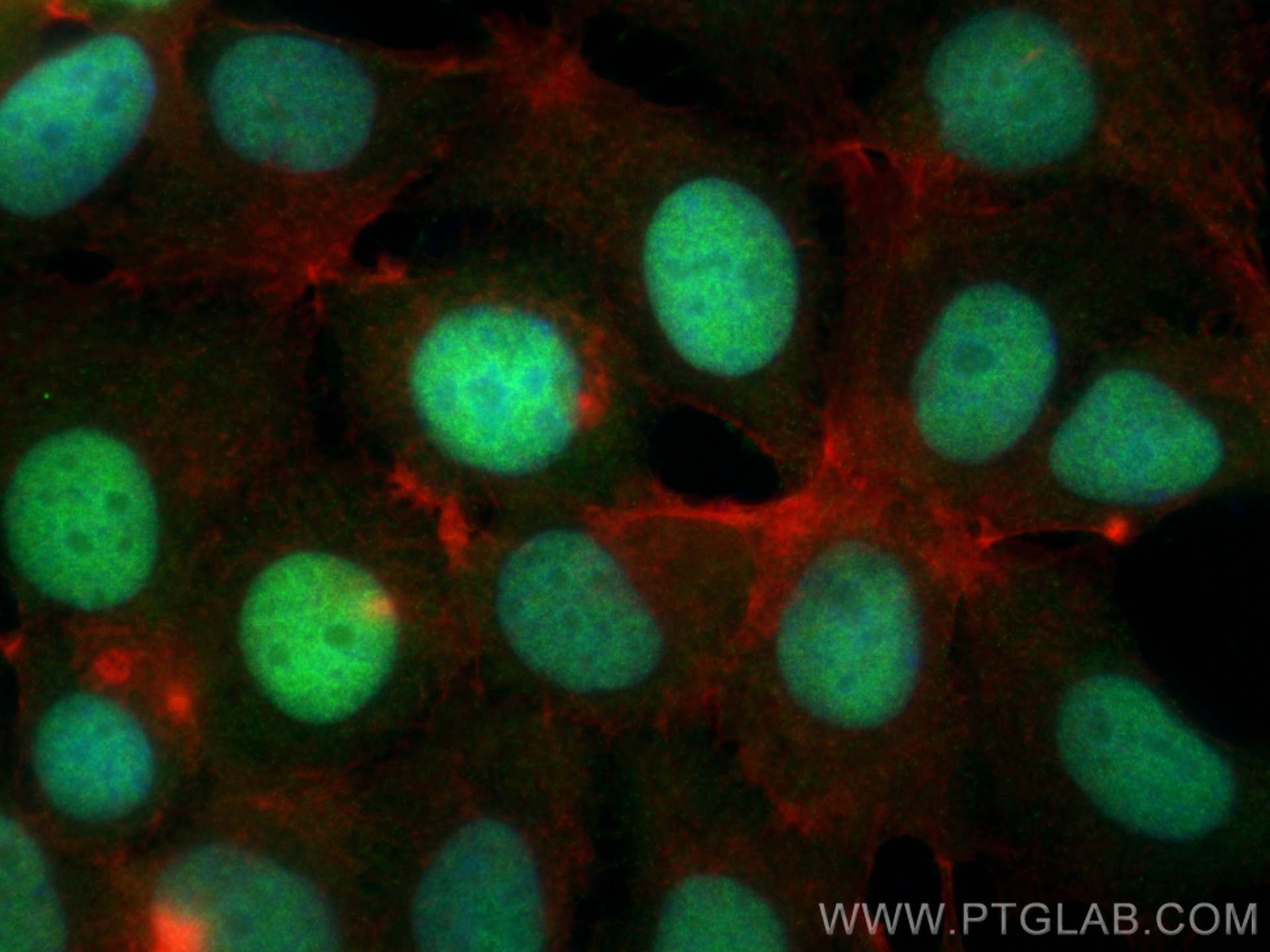验证数据展示
经过测试的应用
| Positive WB detected in | MCF-7 cells, mouse brain tissue, SH-SY5Y cells |
| Positive IP detected in | SH-SY5Y cells, mouse brain tissue |
| Positive IHC detected in | mouse brain tissue, human prostate cancer tissue, rat brain tissue Note: suggested antigen retrieval with TE buffer pH 9.0; (*) Alternatively, antigen retrieval may be performed with citrate buffer pH 6.0 |
| Positive IF/ICC detected in | MCF-7 cells |
推荐稀释比
| 应用 | 推荐稀释比 |
|---|---|
| Western Blot (WB) | WB : 1:5000-1:50000 |
| Immunoprecipitation (IP) | IP : 0.5-4.0 ug for 1.0-3.0 mg of total protein lysate |
| Immunohistochemistry (IHC) | IHC : 1:200-1:800 |
| Immunofluorescence (IF)/ICC | IF/ICC : 1:50-1:500 |
| It is recommended that this reagent should be titrated in each testing system to obtain optimal results. | |
| Sample-dependent, Check data in validation data gallery. | |
产品信息
16513-1-AP targets CXXC5 in WB, IHC, IF/ICC, IP, ChIP, ELISA applications and shows reactivity with human, mouse samples.
| 经测试应用 | WB, IHC, IF/ICC, IP, ELISA Application Description |
| 文献引用应用 | WB, IHC, ChIP |
| 经测试反应性 | human, mouse |
| 文献引用反应性 | human, mouse, zebrafish |
| 免疫原 | CXXC5 fusion protein Ag9733 种属同源性预测 |
| 宿主/亚型 | Rabbit / IgG |
| 抗体类别 | Polyclonal |
| 产品类型 | Antibody |
| 全称 | CXXC finger 5 |
| 别名 | Putative NF-kappa-B-activating protein 102, Putative MAPK-activating protein PM08, HSPC195, CXXC-type zinc finger protein 5, CXXC finger 5 |
| 计算分子量 | 322aa,33 kDa; 227aa,24 kDa |
| 观测分子量 | 35-40 kDa |
| GenBank蛋白编号 | BC017439 |
| 基因名称 | CXXC5 |
| Gene ID (NCBI) | 51523 |
| RRID | AB_2878269 |
| 偶联类型 | Unconjugated |
| 形式 | Liquid |
| 纯化方式 | Antigen affinity purification |
| UNIPROT ID | Q7LFL8 |
| 储存缓冲液 | PBS with 0.02% sodium azide and 50% glycerol , pH 7.3 |
| 储存条件 | Store at -20°C. Stable for one year after shipment. Aliquoting is unnecessary for -20oC storage. |
背景介绍
CXXC5 (CXXC-type zinc finger protein 5) is also named as HSPC195, RINF and TCCCIA00297.CXXC5 is a member of the CXXC-type zinc-finger protein family. CXXC5 is a short protein (322 amino acids in length) that does not have any catalytic domain, but is able to bind to DNA and act as a transcription factor and epigenetic factor through protein-protein interactions. In addition, CXXC5 is capable of regulating various signal transduction processes, including the TGF-β, Wnt and ATM-p53 pathways, thereby acting as a novel and crucial signaling coordinator. CXXC5 plays an important role in embryonic development and adult tissue homeostasis by regulating cell proliferation, differentiation and apoptosis (PMID: 30479059). CXXC5 has two isoforms of 33 kDa and 24 kDa (PMID: 25805812). CXXC5 is modified by phosphorylation after translation.
实验方案
| Product Specific Protocols | |
|---|---|
| WB protocol for CXXC5 antibody 16513-1-AP | Download protocol |
| IHC protocol for CXXC5 antibody 16513-1-AP | Download protocol |
| IF protocol for CXXC5 antibody 16513-1-AP | Download protocol |
| IP protocol for CXXC5 antibody 16513-1-AP | Download protocol |
| Standard Protocols | |
|---|---|
| Click here to view our Standard Protocols |
发表文章
| Species | Application | Title |
|---|---|---|
Nat Commun A noncanonical AR addiction drives enzalutamide resistance in prostate cancer.
| ||
J Exp Med Epigenetic regulator CXXC5 recruits DNA demethylase Tet2 to regulate TLR7/9-elicited IFN response in pDCs.
| ||
Oncogene NUDT21 negatively regulates PSMB2 and CXXC5 by alternative polyadenylation and contributes to hepatocellular carcinoma suppression.
| ||
Haematologica The epigenetic regulator RINF (CXXC5) maintains SMAD7 expression in human immature erythroid cells and sustains red blood cells expansion. | ||
Sci Rep KANK1 inhibits cell growth by inducing apoptosis though regulating CXXC5 in human malignant peripheral nerve sheath tumors. | ||
Front Cell Dev Biol Down-Regulation of CXXC5 De-Represses MYCL1 to Promote Hepatic Stellate Cell Activation. |
